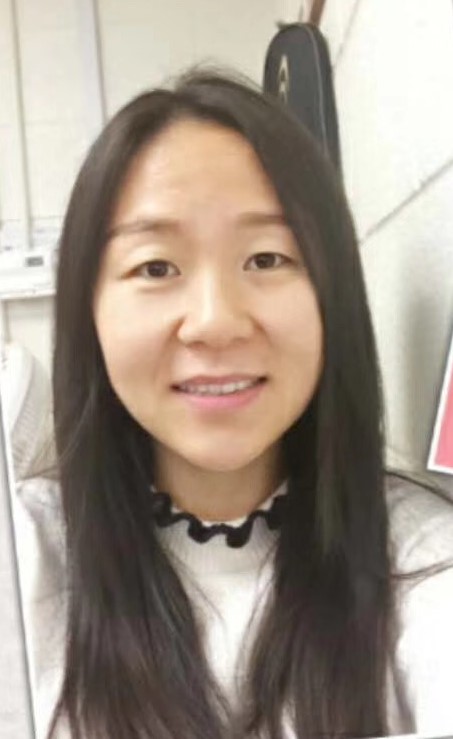About Me
Wenting Li is a Research Scientist at The University of Texas at Austin. Before joining UT Austin, she was a Staff Scientist at Los Alamos National Laboratory (LANL) and a Postdoctoral Research Associate with LANL’s Center for Nonlinear Studies (CNLS) and Theoretical Division (T-5) (2020–2023). She earned her Ph.D. in Electrical, Computer, and Systems Engineering (ECSE) and an M.S. in Applied Mathematics from Rensselaer Polytechnic Institute (RPI) in 2019, advised by Meng Wang. Her doctoral research focused on applying machine and deep learning to power system monitoring and protection.
News
- 07/30/2025: Launched a new IEEE Task Force on Trustworthy AI for Power Grid Reliability and Security (TAIPG).
- 06/08/2025: Our paper LEVIS: Large Exact Verifiable Input Spaces for Neural Networks (arXiv:2408.08824) was accepted at ICML 2025, with an excellent poster presentation by summer intern Mohammad.
- 05/1/2025:With the strong encouragement from DOE ASCR, we submitted the full proposal: *Exploring the Loss Landscape of Neural Networks for Improved\ Training and Formal Verification of Foundation Models.
- 05/25/2025: Presented at University of Texas at Austin: *Trustworthy AI: Advancing Architecture Design, Robust Training, and Formal Verification.
- 06/01/2025: Grateful to join The University of Texas at Austin as a Research Scientist, working with Prof. Hao Zhu and her wonderful group.
- 01/06/2025: Co-organized the 2025 Grid Science Winter School in Santa Fe, featuring invited talks on formal verification and graph neural networks.
- 12/21/2024: Completed the annual review of the largest LANL AI project, presenting our poster and connecting with other research groups.
- 11/03/2024: Presented new work on input-space formal verification at LANL, receiving strong interest and feedback.
- 10/20/2024: Hosted two INFORMS 2024 sessions on graph neural networks, focusing on generalization, efficiency, and robustness.
- 07/21/2024: Gave a talk at the IEEE PES General Meeting in Seattle.
- 07/01/2024: Our DOE SciDAC pre-proposal with UT Austin, Georgia Tech, OSU, and BNL received strong encouragement.
- 06/12/2024: Welcomed intern Mohammad from UT Austin to our group.
- 01/05/2024: Initiated a weekly AI for Science Reading Group, now with 50+ members and rotating presenters.
- 04/05/2023: Presented Physics-Informed Machine Learning for Enhancing Robustness and Verification at the NASPI Workshop and Vendor Show.
- 03/22/2023: Invited talk at the University of Houston on Physics-Preserved Graph Learning for Robust Fault Location in Distribution Systems.
- 02/2022: Paper on Physics-Constrained Adversarial Training for Neural Networks in Stochastic Power Grids accepted by IEEE Transactions on Artificial Intelligence.
- 02/13/2023: Collaborator Dvijotham Krishnamurthy (Dj) presented our work on Physics-Constrained Interval Bound Propagation at AAAI 2023 – AI for Energy Innovation.
- 01/03/2022: Collaborator Deepjyoti Deka presented our paper PPGN: Physics-Preserved Graph Networks for Real-Time Fault Location at HICSS.
- 07/01/2022: Organized a 4-week training on Physics-Informed Machine Learning at LANL.
- 03/11/2021: Presented latest results on neural network verification at the OPTML Reading Group.
- 02/24/2021: Lightning talk at DisrupTech on graph-based learning for fault location with limited labels.
- 08/03/2020: Contributed to the 2020 IEEE PES General Meeting on event detection using convolutional neural networks (link).
- 07/14/2020: Gave a LANL Postdoc Seminar on Physics-Informed Neural Networks for High Impedance Fault Detection.
- 11/01/2019: Delivered the CURENT Power and Energy Seminar on real-time data-driven methods for smart grids.
Research Interests
- Convex reformulation for fine-tuning and verification of large language models (LLMs)
- Trustworthy AI through robust training and formal verification
- Physics-informed machine learning
- Graph learning and graph neural networks
- Robust optimization and verified neural networks
- Feature extraction in high-dimensional data
- Deep learning model design (CNN, RNN, LSTM, Autoencoder)
